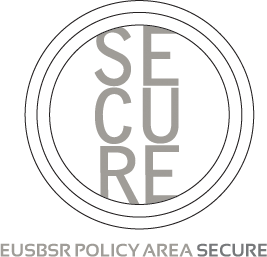About Me
Within the era of digital transactions and online interactions, fraud prevention has grow to be a cornerstone of sustaining monetary and data security. Nonetheless, as technology evolves to combat fraudulent activities, ethical concerns surrounding privateness and protection emerge. These points demand a careful balance to make sure that while individuals and businesses are shielded from deceitful practices, their rights to privacy usually are not compromised.
On the heart of this balancing act are sophisticated applied sciences like artificial intelligence (AI) and big data analytics. These tools can analyze huge amounts of transactional data to determine patterns indicative of fraudulent activity. For example, AI systems can detect irregularities in transaction occasions, amounts, and geolocations that deviate from a consumer’s typical behavior. While this capability is invaluable in preventing fraud, it also raises significant privateness concerns. The query becomes: how a lot surveillance is an excessive amount of?
Privacy concerns primarily revolve around the extent and nature of data collection. Data mandatory for detecting fraud often consists of sensitive personal information, which will be exploited if not handled correctly. The ethical use of this data is paramount. Corporations must implement strict data governance policies to ensure that the data is used solely for fraud detection and is not misappropriated for other purposes. Furthermore, the transparency with which companies handle user data performs a crucial role in maintaining trust. Customers needs to be clearly informed about what data is being collected and how it will be used.
One other ethical consideration is the potential for bias in AI-driven fraud prevention systems. If not caretotally designed, these systems can develop biases based mostly on flawed input data, leading to discriminatory practices. For example, individuals from sure geographic areas or particular demographic groups could also be unfairly focused if the algorithm’s training data is biased. To mitigate this, continuous oversight and periodic audits of AI systems are vital to make sure they operate fairly and justly.
Consent can also be a critical facet of ethically managing fraud prevention measures. Users ought to have the option to understand and control the extent to which their data is being monitored. Decide-in and decide-out provisions, as well as consumer-friendly interfaces for managing privateness settings, are essential. These measures empower customers, giving them control over their personal information, thus aligning with ethical standards of autonomy and respect.
Legally, various jurisdictions have implemented regulations like the General Data Protection Regulation (GDPR) in Europe, which set standards for data protection and privacy. These laws are designed to ensure that corporations adright here to ethical practices in data dealing with and fraud prevention. They stipulate requirements for data minimization, the place only the required amount of data for a selected purpose can be collected, and data anonymization, which helps protect individuals' identities.
Finally, the ethical implications of fraud prevention additionally contain assessing the human impact of false positives and false negatives. A false positive, where a legitimate transaction is flagged as fraudulent, can cause inconvenience and potential financial distress for users. Conversely, a false negative, the place a fraudulent transaction goes undetected, can lead to significant monetary losses. Striking the suitable balance between preventing fraud and minimizing these errors is essential for ethical fraud prevention systems.
In conclusion, while the advancement of applied sciences in fraud prevention is a boon for security, it necessitates a rigorous ethical framework to make sure privateness is not sacrificed. Balancing privacy and protection requires a multifaceted approach involving transparency, consent, legal compliance, fairness in AI application, and minimizing harm. Only through such comprehensive measures can businesses protect their clients effectively while respecting their right to privacy.
If you want to see more info on ip fraud score have a look at our own web page.
Location
Occupation





